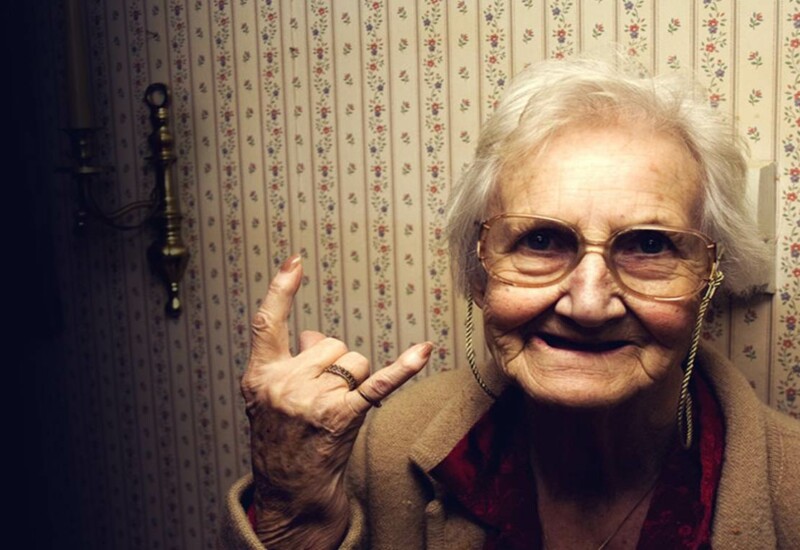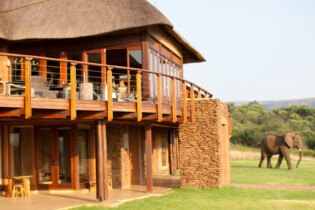Most event planners are in their thirties. Most successful incentive participants are in their 50s. Most event programmes are written for 18-year-old attendees, it would appear. John Fisher wonders whatever happened to thinking about the participants’ profile.
Something strange is happening in the world of demographics. The generation gaps are getting bigger. According to Dick Stroud and Kim Walker, who wrote Marketing to the Ageing Consumer, the Baby Boomer bubble is about to burst all over everyone. The Boston Consulting Group examined the demographics of China, Italy, Japan, the UK and the US, taken as a whole: “The enormity of change… is a resulting increase in the numbers of older people is in the population. In 2010 there were 375 million over-sixties. In the next 20 years, by the end of 2030, this number will be 695 million.”
We have already seen Western governments trying to deal with this by cancelling final salary pension schemes, raising statutory retirement ages and fiddling with the tax system to provide affordable old age healthcare. Marketing people are responding by redesigning packaging with bigger type, making the peeps louder on ATM machines and training retail staff to speak more slowly and in the deeper register to customers. Of course, the reason why commercial organisations are interested in Baby Boomers is that they are wealthy, have time on their hands and their own property. But how will all this affect the events industry and does anyone care if delegates are getting older? Well, yes, if they are working longer.
Let’s start at the beginning. Before the Second World War, consumer ages were distributed across the population in a very predictable way. That made the planning of product development and sales across the generations relatively easy. But from 1946 onwards, better health, economic prosperity and improved transport links created a boom in many businesses and in the birth rate. What’s a Baby Boomer? It’s anyone born during the post-war baby boom, between 1946 and 1964. In the UK, this group of consumers benefit from a perfect economic combination of circumstances: an unprecedented residential property boom, state-funded university education and generous pensions. People generally had a job for life and were, in the main, happy to be told what to do. They would be aged between 49 and 65 today.
 At the end of the age spectrum is Generation Y, the Internet/mobile phone generation, born between 1981 and 2000. They are highly socially aware and own multiple digital communication devices, resulting in work and home life becoming somewhat blurred. They prefer not to work in a rigid chain of command and collaboration rather than hierarchy in organisations is how they work best. Social media is how they communicate. They find spelling difficult. They actually believe what is written in Wikipedia. They would be 13 to 32 now.
At the end of the age spectrum is Generation Y, the Internet/mobile phone generation, born between 1981 and 2000. They are highly socially aware and own multiple digital communication devices, resulting in work and home life becoming somewhat blurred. They prefer not to work in a rigid chain of command and collaboration rather than hierarchy in organisations is how they work best. Social media is how they communicate. They find spelling difficult. They actually believe what is written in Wikipedia. They would be 13 to 32 now.
The implications for the events industry of these two generations being in the workplace at the same time are significant. Let’s take the issue of physical ability. Baby Boomers have declining physical abilities (it’s inevitable and universal). Eight or even 10 point script is difficult to read, colours close to each other in the spectrum become less easy to distinguish, sensitivity to taste diminishes and short-term memory is impaired. A further decline is the ability to sense pressure through the fingertips in hearing sensitivity. Clearly not everyone declined in the same way but the average physiological trends are obvious.
For the thirty-something event planner, event communication needs to be thought through if delegates are mostly Baby Boomers. They need documentation in 10 to 12 point size. Website design should be stripped down to the bare minimum in terms of ‘things going on’. As many not Internet comfortable, don’t assume they know how to ‘sign-up’, link documents, ‘add a friend’ or reformat attachments. White type on colour backgrounds is difficult for them to read. Lack of tact and sensitivity means touchscreen technology needs to be adjusted to the ‘heaviest’ setting. Text on room drops need to be in 12 point type with clear, short instructions as to what they have to do. Don’t rely on text messages if the instruction is logistically important as many often switch their cellphones off.
 Because of their generally higher level of education and wealth than the generations that follow them, on-site programmes for Baby Boomers need to be carefully balanced. They will welcome gourmet restaurants, four-star plus hotels, free time to ‘enjoy’ the facilities and short walking options. Hills are a no-no. Because of their wealth they will have been to whatever destination you are visiting before, possibly several times, you need to seek out unusual things to see and do. Local culture is good, and meeting and talking with local people would be highly prized. ‘Dangerous’ sports and arduous journeys are simply asking for trouble. The chance to ‘opt out’ would be welcomed as energy levels may drop as the programme runs through to its conclusion.
Because of their generally higher level of education and wealth than the generations that follow them, on-site programmes for Baby Boomers need to be carefully balanced. They will welcome gourmet restaurants, four-star plus hotels, free time to ‘enjoy’ the facilities and short walking options. Hills are a no-no. Because of their wealth they will have been to whatever destination you are visiting before, possibly several times, you need to seek out unusual things to see and do. Local culture is good, and meeting and talking with local people would be highly prized. ‘Dangerous’ sports and arduous journeys are simply asking for trouble. The chance to ‘opt out’ would be welcomed as energy levels may drop as the programme runs through to its conclusion.
That all sounds very sensible, so surely all planners do that? Not really. Because Generation Y’s watchword is ‘collaboration’, the first instinct is to ask the delegates what they would like to do. Wrong. Baby Boomers like hierarchy and being told what to do and when… Woe betide you if you change timings or do not deliver what you said you would.
Generation Y communicates digitally so the default way to bring the group together is to set up a social media group on Whatsapp or some similar SMS tool to receive new instructions. Wrong. Many Baby Boomers have only just got the hang of websites and then they don’t trust them, so there’s still a place for print. Generation Y loves new experiences, so they pack their overseas programmes. No hour is left unscheduled. Baby Boomers just want to relax. I’m not saying anyone over 50 is completely gaga. It’s just a question of appreciating that we are not all the same and that if your main delegate profile is 20 years older than you, please think what they would like rather than what you and your DMC (destination management company) want to sell them.
Author note: I am grateful to Dick Stroud for his help with this article. More details can be found in Marketing to the Ageing Consumer by Dick Stroud and Kim Walker, published by Palgrave Macmillan, 2013
This article is reproduced by kind permission of Meetings & Incentive Travel magazine (copyright CAT Publications July 2013)







